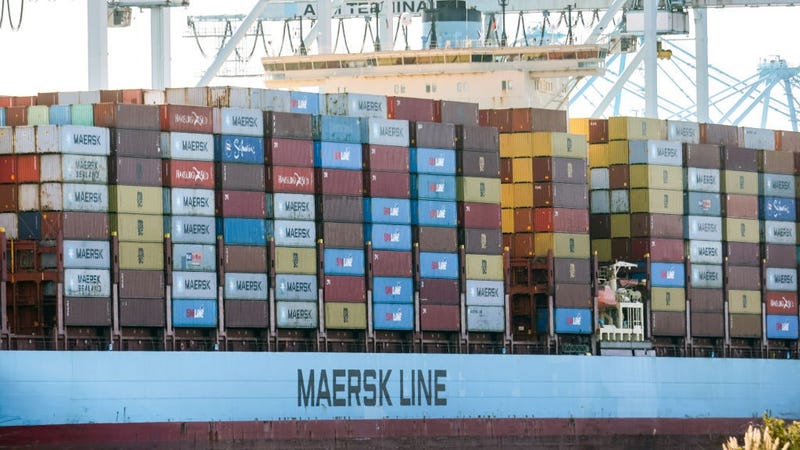
Supply chain issues have been ongoing since the beginning of the pandemic, and have recently continued to be a problem around the world amid the Russian invasion of Ukraine and lockdowns in China due to rising COVID-19 cases.
Although, Cheng Cheng-mount, chairman of Taiwan-based Yang Ming Marine Transport Corp, said port bottlenecks have been slowing down and that could be a good sign for the remainder of 2022.
"I think this is a good sign that the port congestion has been easing" in the U.S., Cheng said in an interview Tuesday with Bloomberg. "We foresee in the second half, everything will become smooth. All the difficulties will be easier."
There had been more than 100 ships waiting outside of the ports in Los Angeles and Long Beach, California earlier in the year, but now, there are less than 40 ships waiting at the ports.
The wait time for ships at U.S. ports has been between 10 to 14 days, while at Shanghai ports, the wait time is only two to three days long.
Cheng added that he expects China to adjust their COVID-19 restrictions, allowing for the economy to have a strong remainder of the year.
As of April 27, there was 27,281 new COVID-19 cases in China with a 7-day average of 28,997 cases, causing the country to enforce strict lockdowns.
The S&P Global Market Intelligence said in an emailed report Thursday, viewed by Bloomberg, that there has been a 30% to 40% increase of congestion at Shanghai ports as of April 25 since early March.
Truck shortages have not helped the supply chain issues, causing containers to pile up at the ports. Logistics experts told Bloomberg that they expect the containers to slow down U.S. and European ports after ships start sailing again.
Cheng agreed with an International Monetary Fund report that showed the projected global trade growth will drop from the estimated 10.1% in 2021 down to 5% this year.
"I agree that the trade is going to slow down, and this is due to the war in Ukraine, and also delayed demand from Covid," Cheng said.
He noted that lower freight rates are likely to occur after the port issues are resolved, suggesting that the U.S. government could improve port speeds by implementing rules to remove empty containers.
"We are rather optimistic," Cheng said.
LISTEN on the Audacy App
Sign Up and Follow Audacy
Facebook | Twitter | Instagram